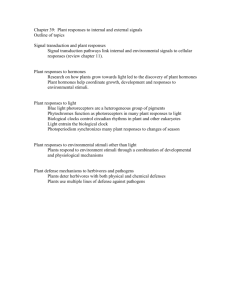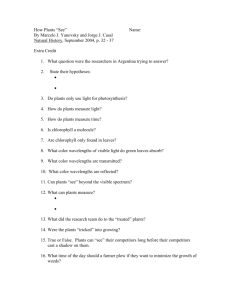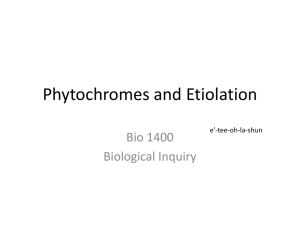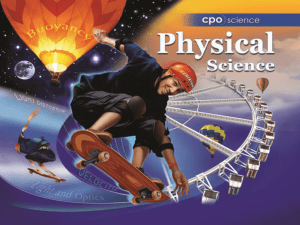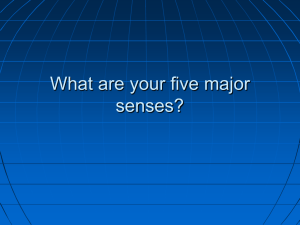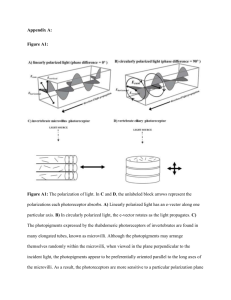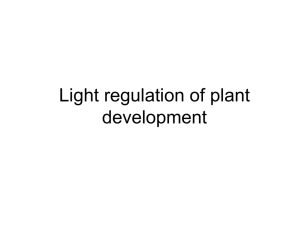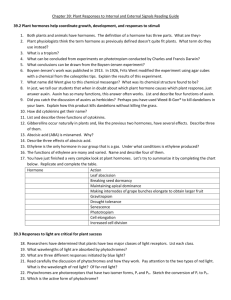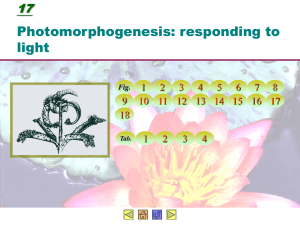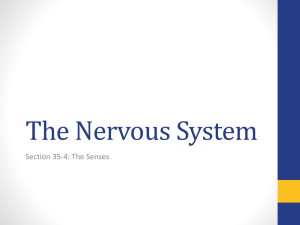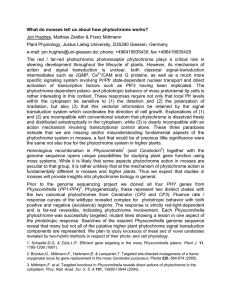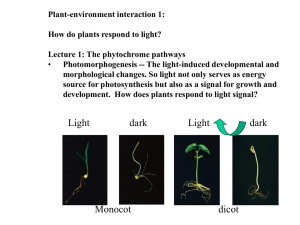660nm 730nm Absorption spectra of phytochrome forms
advertisement
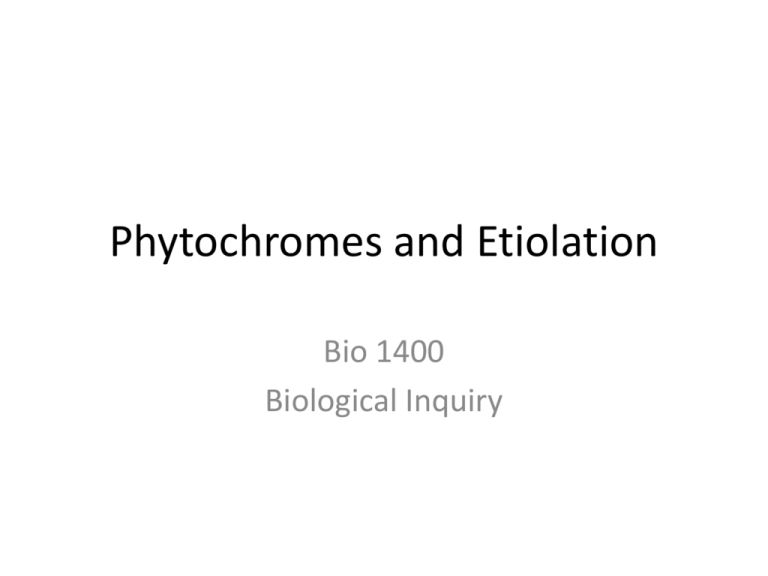
Phytochromes and Etiolation Bio 1400 Biological Inquiry What are photoreceptors? • The retina of vertebrates contains two types of photoreceptor cells: rods and cones – ww.retinalmicroscopy.com/photoreceptors.html Photoreceptors receive light energy from outside the cell CELL WALL CYTOPLASM Light energy chemical and electrical signals Cell response: change in gene expression DNA RNA protein Phytochrome structure in plants How do phytochromes work in plants? Electromagnetic Radiation from Sun far-red 700-800nm Absorption spectra of phytochrome forms 660nm 730nm SIGNAL TRANSDUCTION: Process that allows conversion of light energy chemical and electrical energy gene expression Changes in wavelength of light are detected by phytochromes http://www.bio.miami.edu/dana/226/226F08_21.html Watch the animation for more details • http://highered.mheducation.com/sites/9834 092339/student_view0/chapter41/animation_ -_phytochrome_signaling.html On your own: • Perform an internet search to investigate the function of vertebrate photoreceptors. • How are these proteins similar to photoreceptors in plants? How are they different? • Bring your findings for discussion in class on Tuesday, 9-16-14
